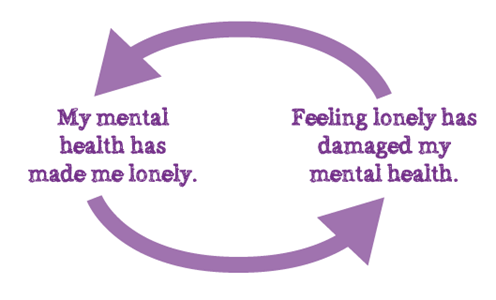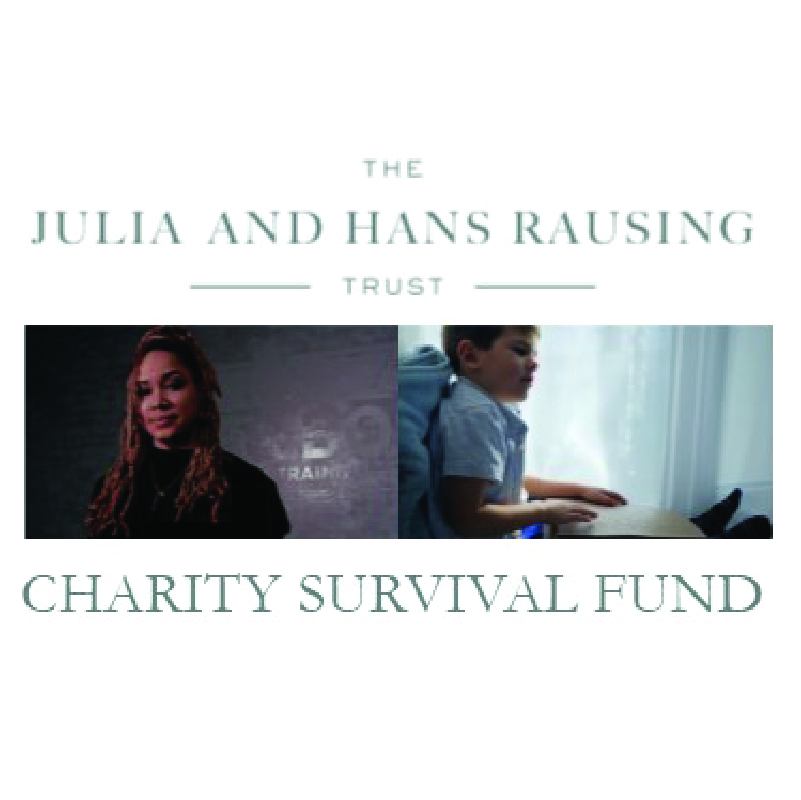The motivation behind our thinking about loneliness for this paper has been two-fold, on a personal level many of us at Revival are coming to the age where our own parents are aging, where they may suddenly find themselves bereaved and on their own for the first time in a long time, or may be less able to get out and about; on a professional level we are coming face-to-face with the consequences of lockdowns, isolation and on-going limitations and restriction, all which have hugely impact on social connectedness and mental wellbeing. A particular request for input at a recent steering group meeting at the Umbrella Community café in Whitstable, has also been a catalyst, I was approached by Cllr Val Kenny, who had direct experience of local residents suffering from loneliness and the consequences of being isolated, after a short discussion on this growing problem I said I would explore it further and get back to her.
So, this is a short summary of our own knowledge and experience as a mental health service, our reading and research, and an exploration of some of the things that are available locally to support those experiencing loneliness and isolation. It is also a call out for information and ideas from within our community on how to tackle it at a local level, do you have ideas you can share, do you know of groups or activities that can help that we and others can signpost people to, if you have anything to share we would love to hear from you, just message our Facebook/Instagram pages or email revival2whitstable@gmail.com, we will also pass this information on to Cllr Kenny who would welcome anything that will help her to continue her work to combat loneliness in our community.
So, what is loneliness?
Feelings of loneliness are personal, so everyone’s experience of loneliness will be different. According to the Oxford dictionary it means “a feeling of being unhappy because you have no friends or people to talk to”, however this is quite a simplistic understanding, the reality for many is often a lot more nuanced. When thinking more deeply about psychological understandings, loneliness can also be understood to be when a person’s social relationships are perceived by that person to be less in quantity, and especially in quality, than desired. This understanding explains how you may still feel lonely in a crowded room, and is also significant in understanding how those with a vast social network online and within social media can still feel immensely lonely.
So, what causes loneliness?
Loneliness has many different causes, which also vary from person to person, but include social, mental, emotional and physical factors. It is a complex and usually unpleasant emotional response to social and emotional isolation, which typically includes anxious feelings about a lack of connection or communication with other beings, both in the present and extending into the future. As such, and as mentioned above, loneliness can be felt even when surrounded by other people. We don’t always understand what it is about an experience that makes us feel lonely.
According to research undertaken by MIND (2013) some life experiences and circumstances can create feelings on loneliness or make us more vulnerable to loneliness. Life events may include bereavement, relationship breakdown, retirement – with the consequent loss of work routine and social connection, changing jobs or feeling isolated from co-workers, starting university, moving to a new area or country without family, friends or community networks, other people find they feel lonely at certain times of the year, such as around Christmas or significant birthdays. The circumstances or demographics that influence vulnerability to loneliness include, social isolation, being estranged from family, if you are a single parent or carer where your responsibilities and income limit your ability to establish and maintain social connections, if you belong to a minority group in an area that does not reflect your own culture or experience, if you have a disability or mobility issue that means you are excluded from social activities, this is also true for those who are economically disadvantaged, and experiences of discrimination and stigma based on your disability, physical or mental health problems, gender, race or sexual orientation. Finally, if you have experienced abuse or trauma that has resulted in you finding it harder to form close relationships or trust others, you will consequently be more vulnerable to loneliness.
It’s a lot to consider. We may have a better understanding of what it is and what can cause it or make us more vulnerable to experiencing it, but is loneliness a mental health issue?
So, is loneliness a mental illness?
What we do know, is that loneliness is a key indicator of social wellbeing and that satisfying social relationships are essential for both mental and physical wellbeing, but is it a mental illness? This graphic is a good place to start:

Research addressing loneliness has increased dramatically over the past 2 decades; however, despite the mental health risks associated with being lonely, the relationship between loneliness and psychiatric disorders needs further investigation.
Many of us feel lonely from time to time and while these short-term feelings in themselves may not be forms of mental ill health Mind (2013), suggests that there is a very strong link between the two. Loneliness can be caused by and can contribute to social isolation and some forms of mental ill health with long-term loneliness being associated with an increased risk of certain mental health problems, including depression, anxiety, increased stress and certain psychiatric disorders.
According to Chris Barber (2018) writing in the British Journal of Mental Health Nursing (Loneliness and Mental health https://www.magonlinelibrary.com/doi/full/10.12968/bjmh.2018.7.5.209) in addition to the physical impacts of loneliness that include: diabetes, autoimmune disorders like rheumatoid arthritis, lupus and cardiovascular diseases like coronary heart disease, hypertension (HTN), obesity, physiological aging, cancer, poor hearing and poor health, loneliness can also be a form of mental illness and he discusses this in relation to some specific disorders:
In some ways, loneliness is a mental illness if it is linked to ‘Autophobia’, ‘eremophobia’ or ‘monophobia’, the specific phobia of isolation, a morbid fear or a dread of being alone or isolated.
“Sufferers need not be physically alone, but just to believe that they are being ignored or unloved […] monophobia is an acute fear of being alone, of being unsafe while being alone and having to cope without a specific person, or perhaps any person either in the same building or even the same room. Eremophobia can be defined as a morbid fear of being isolated, while autophobia can be defined as a morbid fear of solitude or one’s self. […] The symptoms of autophobia can vary significantly. However, there are some symptoms that most people with this condition experience. An intense amount of apprehension and anxiety when they are alone or think about situations where they would be secluded is one of the most common indications that a person is autophobic. People with this condition also commonly believe that there is an impending disaster waiting to occur whenever they are left alone.”
While accepting that autophobia, eremophobia and monophobia may be valid forms of mental ill health, it is important not to pathologise loneliness, as we have discussed earlier there are many and varied causes and consequences of loneliness. However, for those that identify with the feelings and experiences associated with the phobia’s discussed, it is important to be aware and to seek medical advice and support.
The circle of loneliness is very evident, loneliness impacts on our mental health and wellbeing, and our vulnerability to loneliness is equally, impacted by our mental health and wellbeing. The most important take away from this is the undeniability that left untended, loneliness can have serious consequences for the mental and physical health of our communities.
So, can we combat loneliness?
According to VeryWellMind, statistics suggest that loneliness is becoming increasingly prevalent, particularly in younger generations. According to one 2019 survey, 25% of adults between the ages of 18 and 27 reported having no close friends, while 22% reported having no friends at all, and this was before COVID and its fallout. Despite the rise of the internet and the increase in reliance on online social networks (especially during the last 2 years) and the ease that they can be engaged in, loneliness and social isolation has perhaps never been greater, more apparent and in some cases more devastating, with many citing social media as partially, or indeed, considerably, to blame. This may be because of our better understanding of loneliness that links back to the psychological definition of loneliness being about quality, rather than quantity, with experts believing that it is not the quantity of social interaction that combats loneliness, but the quality. Taking a break from social media might be a good place to start then. This is not being flippant, if quality is the key, our relationship with the all-consuming nature and pressures of social media does need considering. On reviewing the support and suggestions for combating loneliness that will be outlined below, it is evident that face-to-face interactions, as much as possible, are by far the preferable way to go, with the better overall outcomes and impact, according to VeryWellMind, having just a few close friends is enough to ward off loneliness and reduce the negative health consequences associated with this state of mind.
There is however a plethora of information and support available (ironically sourced online) and it is heartening to read the positive affirmation from involved organisations and charities, that loneliness can be overcome. It does require a conscious effort to make a change, for all of us as a community, country and human race. There have been positive steps at a UK Government level with the establishment of a Minister for Loneliness and the launch of the first Loneliness Strategy in 2018, but these were all pre-COVID and the fallout of the pandemic and policy is going to need serious focus and a multi-level and agency response.
One of the best elements of the 2018 strategy was the development of Social Prescribing. According to the NHS social prescribing involves “helping patients to improve their health, wellbeing and social welfare by connecting them to community services which might be run by the council or a local charity. For example, signposting people who have been diagnosed with dementia to local dementia support groups.” Revival has linked in with our local social prescribing networks to ensure that we are able to offer or signpost people to groups, activities or services that are best suited to their needs, and we have our own dedicated staff member, Tara, to coordinate all the mental wellbeing information. We are very lucky to have a thriving social prescribing network locally but are still aware that many people have never heard of it when we talk about it and signpost them to RedZebra or the Whitstable Medical Practice, so we know there is still a long way to go to ensure everyone is aware of the support available.
So, what can you do?
Below is a list of ideas from mental health organisation, based on their professional practice and research, that may be helpful. Whilst lists can be useful, they can also be overwhelming so please remember that different things work for different people at different times. MIND give great advice when they say “only try what you feel comfortable with, and try not to put too much pressure on yourself. If something isn’t working for you (or doesn’t feel possible just now), you can try something else, or come back to it another time.
Things to consider:
Community service or another activity that you enjoy. These situations present great opportunities to meet people and cultivate new friendships and social interactions.
Expect the best. Lonely people often expect rejection, so instead, try focusing on positive thoughts and attitudes in your social relationships.
Focus on developing quality relationships. Seek people who share similar attitudes, interests, and values with you.
Recognise that loneliness is a sign that something needs to change. Don’t expect things to change overnight, but you can start taking steps that will help relieve your feelings of loneliness and build connections that support your well-being.
Understand the effects of loneliness on your life. There are physical and mental repercussions to loneliness. If you recognise some of these symptoms affecting how you feel, make a conscious effort to combat them.
Join a group or start your own. For example, you might try creating a Meetup group where people from your area with similar interests can get together, be aware that interest based groups are more likely to help you make lasting connections, having something in common is a great basis for a friendship.
Strengthen a current relationship. Building new connections is important, but improving your existing relationships can also be a great way to combat loneliness. Try calling a friend or family member you haven’t spoken to in a while.
Talk to someone you can trust. Reaching out to someone in your life to talk about what you are feeling is important. This can be someone you know such as a family member, but you might also consider talking to your doctor or a therapist. Online therapy can be a great option because it allows you to contact a therapist whenever it is convenient for you.
Spend time with animals. Some people find spending time around animals can help with feelings of loneliness, whether through owning a pet or spending time around animals in their natural environment. If it is possible where you live, you could try visiting a local community or city farm – the organisation Social Farms and Gardens has a list of outdoor community projects across the UK, many of which have animals available to the public.
Avoid drugs and alcohol. While you might want to use drugs and alcohol to cope with difficult feelings about yourself, in the long run they can make you feel worse and can prevent you from dealing with underlying problems.
Support interventions available:
It is important to recognise that loneliness is a void that is not going to be necessarily filled by endless activity, sometimes you just need a little specific help and support. There are a range of interventions available from Talking Therapies, Cognitive Behaviour Therapy, Counselling and interpersonal psychotherapy, your GP is a good start with these approaches.
There are also a range of alternative approaches that you could explore including holistic therapies including acupuncture, herbalism, mindfulness and mind/body exercises such as yoga or Tai Chi. Whatever, and whoever, you engage with, always make sure you do your research in relation to who they are, their qualifications and experience.
As mentioned before, Social Prescribing is a service that connects you with activities and groups that focus on something that you enjoy or a service that you need, it is an alternative to a medical prescription, instead you get a social prescription to help improve your local connections and networks. There are several groups with a specific focus on loneliness.
‘Combating loneliness one conversation at a time’
One support avenue that we are particularly passionate about is peer support, it’s a big part of what we do and we know it works. There are many different types of peer support service, these provide people with a space to use their own experiences to help and support each other, including experiences of loneliness and related mental health problems. Peer support is based on mutual benefit, where everyone’s experience is equally valid and no-one is more of an expert than anyone else. This is why we do not ‘lead’ our groups, we are facilitators, leading is something you do ‘to’ a group, facilitating is something you do ‘with’ a group, it is important to us that group participants know that the group is for them as a collective, we are simply a non-judgemental host providing space and support in the form of active listening and empathy but, if appropriate, we can also sharing or draw on our own lived experience, and if needed provide information or signposting to East Kent Mind and other local services.
Our groups are informal, safe spaces to share knowledge and build relationships. They provide emotional and social support and crucially for us, have the backing of a robust, professional and experienced charity organisation that provides our mental health training, our staff clinical supervisions and support, and a wealth of knowledge and resources, if we need it.
Our facilitated groups run weekly in the day and evening on a Wednesday and our Wellbeing walks are on Sundays at 10am, check out of Facebook pages for details.
https://www.facebook.com/revivalcafeandwellbeing
https://www.facebook.com/groups/1233649430357321 (Walking for Wellbeing)
https://www.facebook.com/groups/482741399268581 (MenTalk)
https://www.facebook.com/groups/1542625059459773 (Women’s Wellness)
There are other local peer support groups to, TakeOff is a particularly well-established organisation with an array of activity-based groups and an extensive timetable:
https://www.facebook.com/SouthKentTakeOff
The umbrella Centre in Canterbury also runs different groups and drop-in services:
https://www.facebook.com/CanterburyUmbrellaCentre
There are other models of peer support too, these include Befriending and online communities. Various charities offer telephone befriender servicers (incl. AgeUK and RedZebra), which put volunteer befrienders in touch with people feeling lonely. National MIND have a page on their website of useful contacts for details of organisations that run befriender services. Social prescribing locally is also a great contact to find out what is available, including a service from HappyHere who are founded and proudly LGBTQIA:
https://www.mind.org.uk/information-support/tips-for-everyday-living/loneliness/useful-contacts/
You could also join an online community like Side by Side. These communities can provide a place to listen and share with others who have similar experiences. They are available 24/7, most are free and you can access them wherever you are.
https://www.mind.org.uk/information-support/side-by-side-our-online-community/
A very well-established Befriending service locally is run by Food Friends, who combine food and community to connect people locally:
We hope you have found this an interesting paper, please feel free to share it with anyone who might be interested/benefit. We would especially like to hear from anyone that has any ideas or information that we can add (that isn’t already covered locally by Social Prescribing) or that might help Cllr Kenny in her work looking for ways to combat loneliness. Sometimes it is the simplest of things that can make a difference in our own lives and in the lives of others, by caring for each other, checking in on people who are more isolated, or even volunteering in some capacity, we can help prevent a loneliness epidemic.
Blogs, Vlogs and podcasts:
https://www.mind.org.uk/information-support/your-stories/a-friendly-voice-in-the-pandemic/
https://www.verywellmind.com/the-verywell-mind-podcast-5113058
Useful links:
https://www.verywellmind.com/loneliness-causes-effects-and-treatments-2795749















